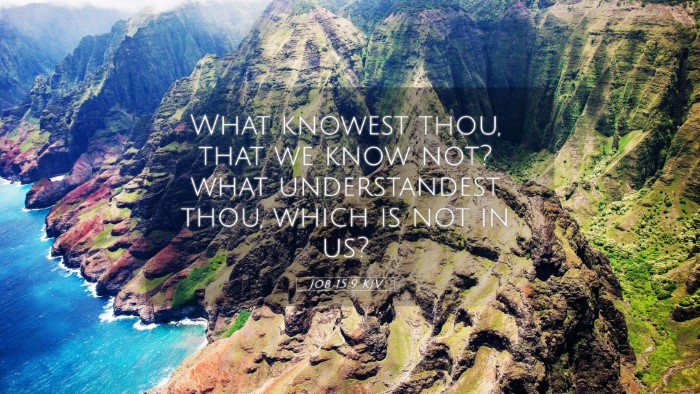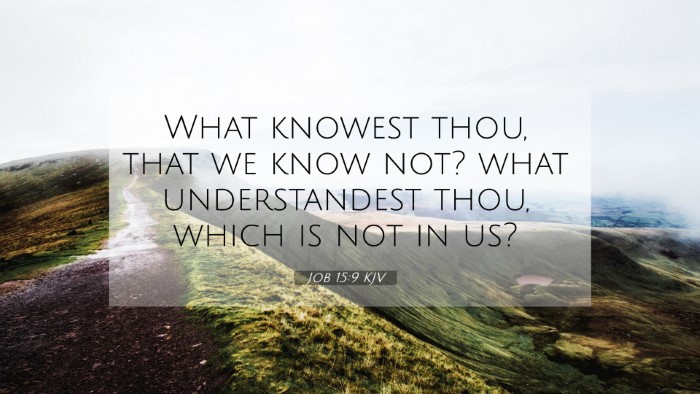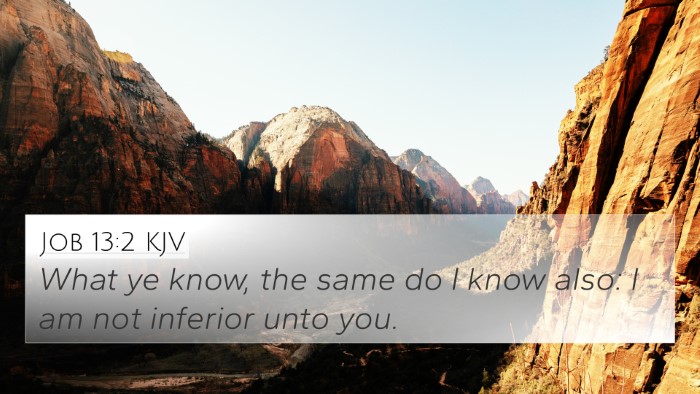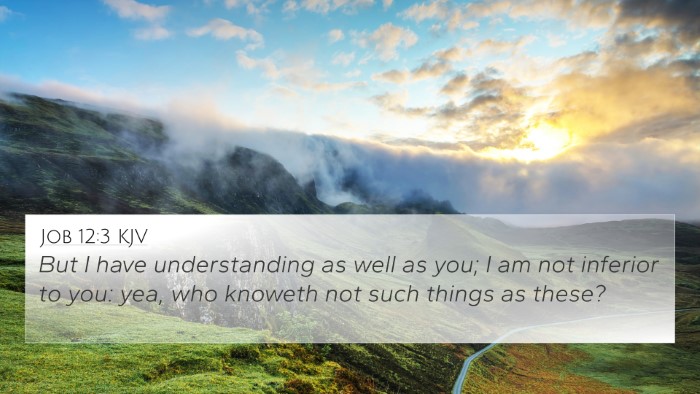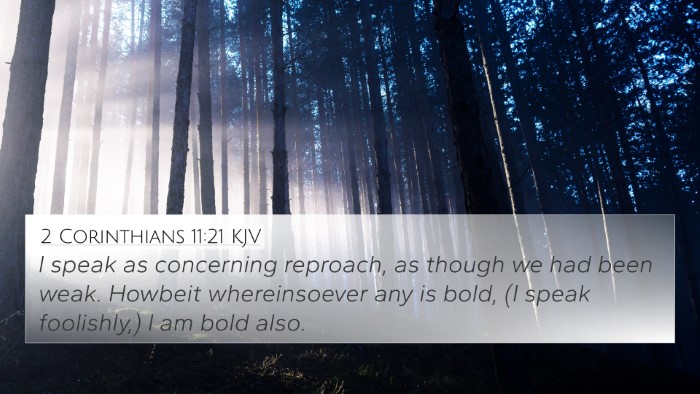Understanding Job 15:9
Job 15:9 states, "What do you know that we do not know? What understandings do you have that we do not?" This verse captures a moment of dialogue between Job and his friend Eliphaz, who challenges Job's understanding of his suffering. The complexities of human wisdom and divine knowledge are explored, prompting readers to seek deeper connections within the scriptures.
Summary of Insights
- Human Limitations: Eliphaz highlights the limitations of human wisdom compared to divine understanding, emphasizing humility in the face of suffering.
- Divine Perspective: The verse encourages believers to seek God's perspective on their trials, reminding them that God's ways often transcend human reasoning.
- Comparison with Other Scriptures: This text can be cross-referenced with other Biblical verses to enhance understanding.
Key Themes and Cross-References
Job 15:9 addresses several key themes including human knowledge, suffering, and the quest for understanding. The following Biblical verses are thematically linked:
- Proverbs 3:5-6: Trust in the Lord with all your heart and lean not on your own understanding.
- Isaiah 55:8-9: For my thoughts are not your thoughts, neither are your ways my ways.
- James 1:5: If any of you lacks wisdom, let him ask of God, who gives to all liberally.
- Job 28:28: The fear of the Lord—that is wisdom, and to shun evil is understanding.
- Psalm 147:5: Great is our Lord and abundant in power; his understanding is beyond measure.
- Romans 11:33: Oh, the depth of the riches and wisdom and knowledge of God!
- 1 Corinthians 1:25: For the foolishness of God is wiser than men; and the weakness of God is stronger than men.
Comparative Bible Verse Analysis
In Job 15:9, Eliphaz's assertion serves as a pivot point for a broader analysis of wisdom throughout the Bible. The responses and reflections found in Job can be understood in the context of other texts that address suffering and divine wisdom.
Such cross-referencing can enhance one's comprehension of how themes link different passages, providing a holistic view of divine wisdom and human experience.
Tools for Bible Cross-Referencing
For those eager to delve deeper into cross-referencing Biblical texts, consider using the following tools:
- Bible Concordance
- Bible Cross-Reference Guide
- Cross-Reference Bible Study
- Bible Reference Resources
- Bible Chain References
- Comprehensive Bible Cross-Reference Materials
How to Use Bible Cross-References
Using a structured Bible cross-reference system can greatly enhance your study:
- Identify a key verse, such as Job 15:9.
- Consult a Bible concordance to find related verses.
- Analyze each verse for thematic connections.
- Reflect on the inter-Biblical dialogue among these scriptures.
Conclusion
The verse Job 15:9 serves to remind us of the limitations of human understanding. Through cross-referencing, we can identify connections between this verse and others, enhancing our comprehension of its broader implications. The exploration of these themes can guide individuals in their faith journey and provide wisdom in times of suffering.

